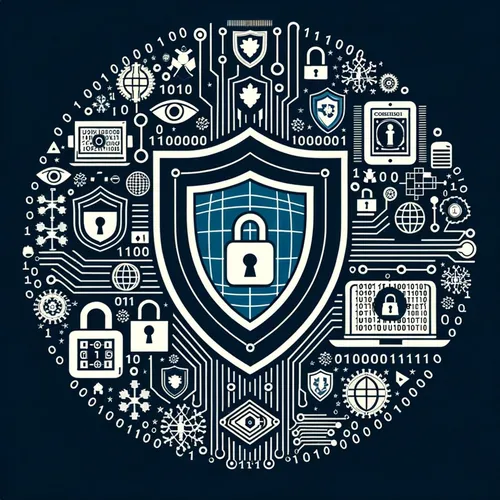Cyber Showdown: US vs China - Hacked Solar Panels, Rogue Fridges, and the AI Arms Race
- Author
- Quiet. Please
- Published
- Sat 21 Jun 2025
- Episode Link
- https://www.spreaker.com/episode/cyber-showdown-us-vs-china-hacked-solar-panels-rogue-fridges-and-the-ai-arms-race--66678138
This is your Tech Shield: US vs China Updates podcast.
Okay, let’s get straight to the digital frontlines—because the cyber rivalry between the US and China is hotter than my laptop after a Zoom marathon, and the past week’s news has been nothing short of electrifying.
First off, Wednesday’s headlines were laser-focused on the element of surprise in both space and cyber: the US is now openly messaging China that state-sponsored hacking will not be tolerated. Experts (and plenty of think tank folks) are urging the Biden administration to be crystal clear—any attempt by China’s PLA Cyberspace Force to slip into US networks will be met with consequences. This sprint to deterrence comes at a time when the PLA, under Xi Jinping’s command, just reorganized its aerospace and cyber assets—now directly answering to the top brass—to double down on high-tech offensives against US targets. We’re talking satellites that upgrade China’s ISR (intelligence, surveillance, recon) powers, and new cyber units poised to paralyze adversary systems in a real showdown.
But the threat isn’t just theoretical. The Department of Defense’s latest 2025 Threat Assessment flagged an uptick in actual Chinese intrusions—PLA Cyberspace Force and Ministry of State Security agents are stealing sensitive data, targeting everything from defense labs to universities, looking for a technological edge. The goal? Outpace the US in both the digital and physical battlespaces. And we’re not just worried about espionage. According to Bryson Bort, Army Cyber alum, Chinese hackers have already nosed their way into parts of America’s critical infrastructure—think power grids—sometimes using the unlikeliest of backdoors. My personal favorite tidbit: rogue communication modules found in Chinese solar inverters installed across the country. Imagine a secret chat channel for hackers, baked right into your rooftop panels. Yeah, not the clean energy boost anyone was hoping for.
So how is Uncle Sam fighting back? This week saw a flurry of activity: new patches for federal defense systems, emergency advisories to utilities, and a supercharged effort to vet all imported hardware for sneaky surprises. Industry is finally waking up—more boards are appointing cybersecurity leads, and the private sector is upping investment in AI-driven threat detection. But are we catching up fast enough? Not according to Congress. One panel bluntly warned that the US is still losing ground in the cyber contest, with adversaries exploiting old vulnerabilities and slow bureaucratic processes.
My expert take? We’re getting smarter, but the game is evolving faster than our defenses. The US is patching holes and launching advisories left and right, but China’s playbook is asymmetric—more innovative, more persistent. The good news: new tech like AI threat hunters and zero trust segmentation is rolling out fast. The bad news: it’s a race, and the finish line keeps moving.
So, next time you plug in your smart fridge or admire those shiny solar panels—just remember, cyber defense isn’t just about firewalls anymore. It’s about outthinking an opponent who’s always inventing something new. Stay patched, stay paranoid, and as always—watch this space.
For more http://www.quietplease.ai
Get the best deals https://amzn.to/3ODvOta
